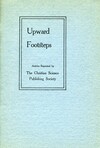

Are you sure?
This bookmark will be removed from all folders and any saved notes will be permanently removed.
"THE WORDS OF MY MOUTH."
Christian Science is proclaiming anew to the world the truth that if it would ever know freedom from disease and bondage, from weight and woe, it must obey the command of Scripture, "Be ye holy in all manner of conversation." Health and joy, peace and prosperity, are unobtainable without it. "But," says one, "what relation does my conversation bear to my happiness and health?" A most important one, for our conversation is an expression of our thought, and our thought governs our bodies and circumstances. Moses declared to the children of Israel: "Know therefore this day, and consider it in thine heart, that the Lord he is God in heaven above, and upon the earth beneath: there is none else." Because God is All, and has made all good like Himself, nothing really exists to talk about apart from His all-perfect creation, the joy, health, and holiness which He has ordained.
To talk of the supposititious opposite of God, good, expressed as disease and sin, discord and horror, is to dishonor Him and break the First Commandment, "Thou shalt have no other gods before me." Therefore it is a part of the Christian Scientist's religious duty to talk of that which is helpful and spiritual, immortal and true, and he knows that he is breaking a divine command when judging, criticizing, condemning, or talking of the imperfections expressed through the mortal sense of personality. Paul's injunction, "Be thou an example of the believers, in word, in conversation, in charity, in spirit, in faith, in purity," becomes his watchword.
Through all the writings of Mrs. Eddy we find the thought expressed that it is inadmissible to repeat error of any kind, unless it becomes absolutely necessary to uncover and destroy wrong. In "Miscellaneous Writings" (p. 346) she says, "It is a rule in Christian Science never to repeat error unless it becomes requisite to bring out Truth." How seldom is it really necessary to voice error in order to bring out the truth! It is helpful, before naming any discord, to remember this rule and ask one's self if one's only thought in speaking is to lessen the trouble that should be overcome. The real Christian Scientist has but one desire, to decrease all forms of evil; he is always obedient to the command, "Thou shalt not bear false witness."
Enjoy 1 free Sentinel article or audio program each month, including content from 1898 to today.
JSH Collections
This article is included in:
1910 - PAMPHLET
Upward footsteps
JSH-Online has hundreds of pamphlets, anthologies, and special editions for you to discover.

June 11, 1910 issue
View Issue-
THE PUBLIC DEBT TO CHRISTIAN SCIENCE
W. D. MC CRACKAN, M.A.
-
REBUKING ERROR
CHARLOTTE PAULSEN
-
THE CONSTRUCTIVE MIND
DR. EDMUND F. BURTON
-
LIGHT
HERBERT A. HUTCHINSON
-
"THE WORDS OF MY MOUTH."
M. ETHEL WHITCOMB.
-
THE HUMAN PROBLEM.
MARGARET H. MAYNARD.
-
"AS SCARLET."
JANE E. HUDDART.
-
COMMUNION
EVELYN SYLVESTER KNOWLES
-
The letter signed "A Student" in a recent issue, exhibits...
Frederick Dixon
-
Christ Jesus commanded his disciples: "And as ye go,...
Alfred Farlow
-
It is no hyperbole, but the literal truth, to say that there...
William J. Bonnin
-
The dictionary defines science as "knowledge, or a...
George A. Law
-
One critic says that the Bible "is the book of God" and...
Howard C. Van Meter
-
Christian Scientists know that their teaching is radically...
Charles K. Skinner
-
The whole trend of Christian Science teaching is to lift...
George Shaw Cook
-
MRS. EDDY TAKES NO PATIENTS
Editor
-
THE ANNUAL MEETING
with contributions from Bicknell Young, Annie M. Knott, Julia S. Bartlett
-
"LET THEM HAVE DOMINION"
John B. Willis
-
GOD'S LAW OUR DEFENSE
Annie M. Knott
-
THE LECTURES
with contributions from Francis J. Hambly, W. J. Hill, Colonel Hobart, Jacob S. Shield
-
I came into Christian Science about two years ago
Mary D. Moore with contributions from Israel Moore
-
It was after I had taken medicine for weak lungs for...
Bergliot Karlson
-
In gratitude to God, and to our dear Leader, Mrs. Eddy,...
Mary E. Goulding
-
In 1898 Christian Science found me helpless...
Gertrude Chick
-
One day, nearly two years ago, I was lying down with...
Belle A. Mundy
-
I will add my thanks to those that are given each week...
Christian Textor
-
Feeling that I have been greatly benefited through the...
Bertha Hawkins
-
Words cannot express my gratitude to God, and to Mrs. Eddy...
R. H. Pentecost
-
It is with the greatest joy and gratitude that I add my...
Gertrude E. Salter
-
FROM OUR EXCHANGES
Charles W. Burrowes


